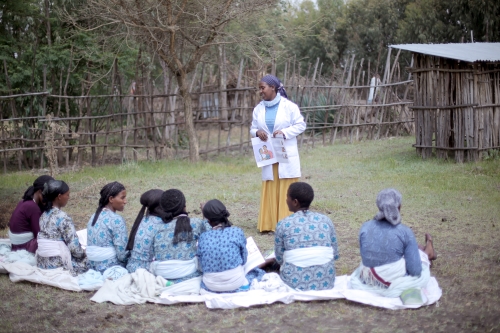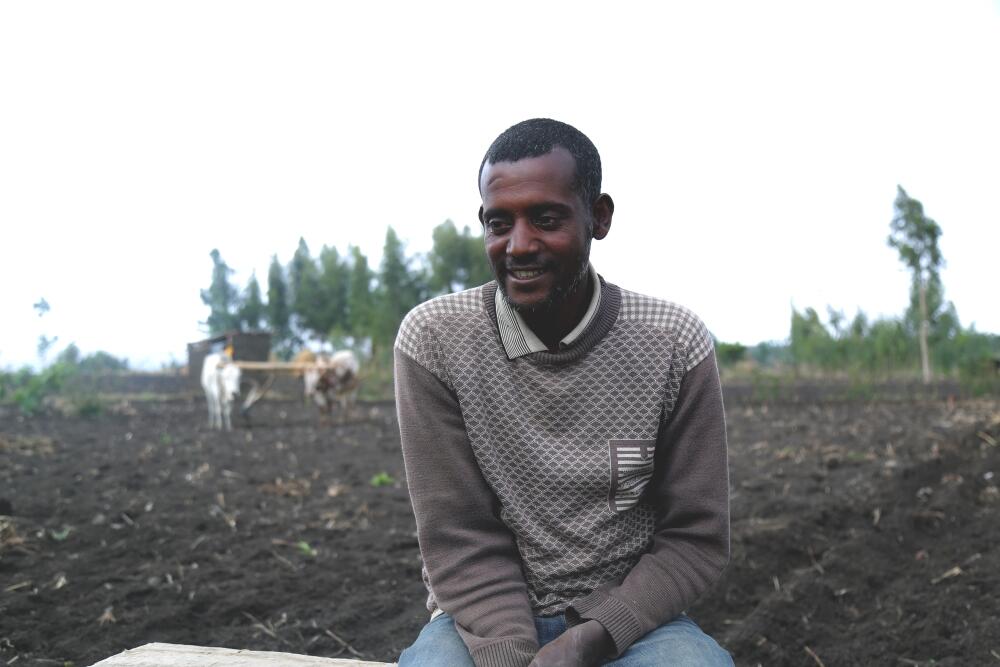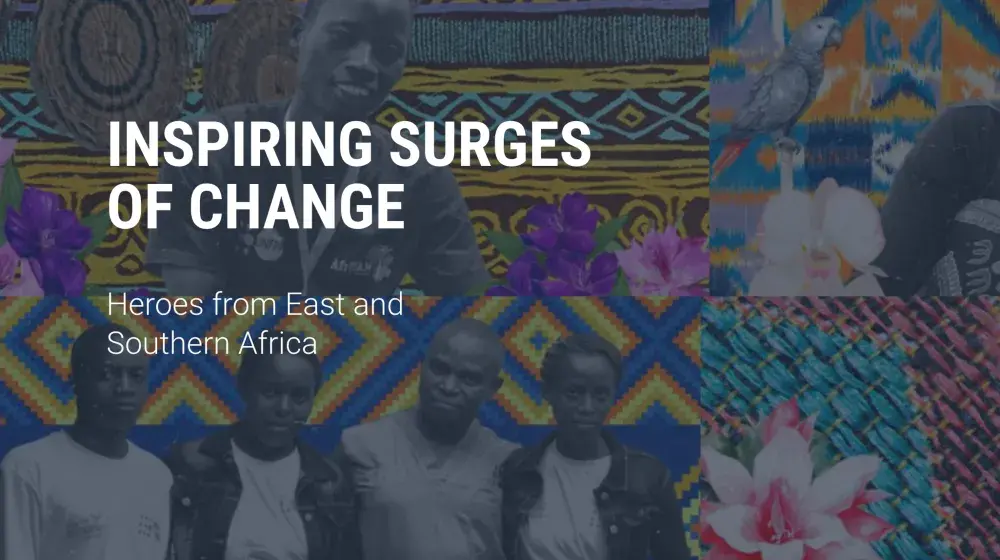SHEBEL BERENTA DISTRICT, Amhara Region, Ethiopia – Sileshi Deguale is busy preparing his land for the planting season; it is back-breaking work but he has the support of family members. Last year he carried most of this burden alone because his wife was often ill. This year her health has improved – thanks to his vasectomy.
It has been a year since he took what he describes as one of the biggest decisions of his life. By undergoing the vasectomy, he allowed his wife to regain her health and become a productive member of the family once more. This has helped improve the lot of their eight-member household.
My wife tried both short- and long-term family planning methods for some time but they did not (agree) with her.
Discovering new family planning choices
Mr. Deguale is one of only three men in his community who have undergone the procedure. He believes his decision was the right one.
“My wife tried both short- and long-term family planning methods for some time but they did not (agree) with her,” he says.
When community health workers came to the area to talk about family planning and the method choices available, Sileshi listened and had no doubts as to what to do. After discussions with his wife, he headed to the nearby Yeduha District Hospital to undergo the vasectomy procedure.
Ethiopia’s sharp rise in family planning users

Ethiopia’s success towards achieving its ambitious family planning targets is attributable to exemplary acts such as that of Mr. Deguale, and community health work in general. The use of modern family planning methods among currently married women aged 15-49 years has increased phenomenally in the country, from 8 per cent in 2000 to 36 per cent in 2016 (DHS).
Much of the credit for this result goes to the Health Extension Programme, which took family planning services to people’s doorsteps. The national fertility rate has also decreased, from 5.5 births per woman to 4.6 over the same period. The Amhara Region, where Sileshi resides, ranks second nationally in the use of modern family planning methods.
Since the FP2020 commitment in 2012, Ethiopia has added over 2 million new users of modern contraception. This translates into the averting of 8 million unintended pregnancies, 2 million unsafe abortions and 20,000 maternal deaths as a result of the protection provided by the use of modern contraceptives.
Service delivery points well stocked with contraceptives thanks to UNFPA Supplies
Around one third of the reproductive health commodities and life-saving medicine requirements of Ethiopia is being supplied through UNFPA Supplies. A UNFPA Supplies-supported facility-based survey on stock availability (2016) showed that at least 3 modern contraceptive methods at primary level and at least 5 at secondary and tertiary level were available at 95 per cent of the service delivery points.
In its Health Sector Transformation Plan, Ethiopia has committed to increasing its contraceptive prevalence rate to 55 per cent. But there is still a long way to go to attain this ambitious goal.
I have no regrets (over) the decision I took, despite the fact that people in the community continue to ridicule me.
Currently, more than 1 in 5 women in the country still have an unmet need for family planning, with the figure reflecting much higher in rural areas (DHS, 2016). Moreover, the method mix remains skewed towards short-acting family planning methods, although the share of long-acting methods has shown a remarkable increase in the past 5 years.
Mr. Deguale expresses his gratitude that he was able to make a better choice when it comes to family planning: “I have no regrets (over) the decision I took, despite the fact that people in the community continue to ridicule me,” he says.
That decision has brought visible changes to the health and wellbeing of his family. Six months after he underwent the vasectomy, his wife had her contraceptive implant removed as it didn't agree with her, and her health has greatly improved.
- Abraham Gelaw




